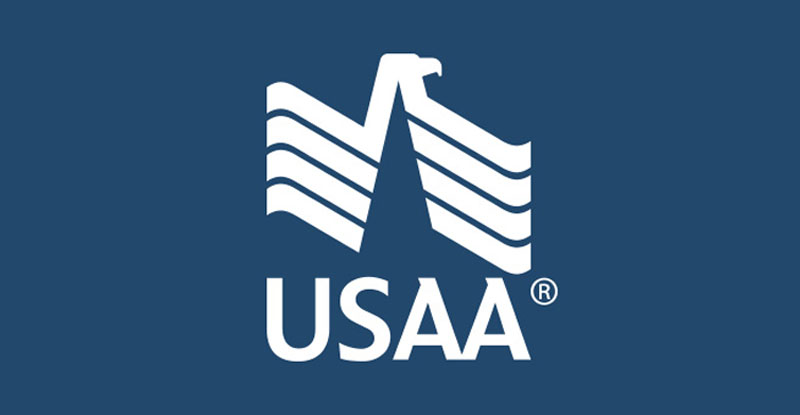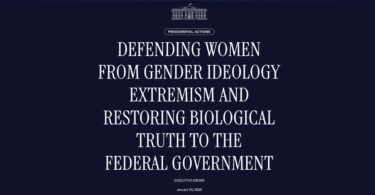By Dr. Scott Sturman, MD
US Air Force Academy ’72
Since 1922, the United Services Automobile Association (USAA) has provided banking and insurance products and services exclusively to members of America’s military, its veterans , and their families. The company serves 13 million clients and ranks No. 96 on the Fortune 500 list. It is regarded as one of the world’s most admired companies.
But USAA’s recent involvement in corporate activism and its advancement of contentious ideologies suggests that the trust on the part of its members is misplaced.
Behind the facade of platitudes extolling fairness and equality of opportunity, things are not what they appear to be. There is a more sinister motive: the promotion of diversity, equity, and inclusion as an integral part of the company’s corporate model.
USAA’s success is in large part due to the symbiotic relationship between it and generations of military families. USAA’s relentless advertising campaigns feature patriotism and the elite character of men and women who value ability, service, and unity.
But the company’s overt and unapologetic support of DEI, an ideology influenced by Marxist-based critical theory, and social justice programs with similar leanings is at odds with these traditional military values and casts a shadow on the company’s vaunted reputation.
USAA risks losing the brand value established over generations.
Wayne Peacock became USAA’s president and CEO in 2020 — the first non-veteran to serve in this role. Under his leadership, the company has embraced corporate activism to the detriment of its standards and the well-being of its members.
USAA’s corporate social responsibility and environment, social, and governance score, for example, is 85 out of a possible 100 — well above the industry standard.
Progressive corporations contend that the integration of DEI and ESG programs are key to long term business sustainability and success. Companies with high ESG scores tend to promote pervasive DEI corporate cultures.
However, many believe that compliance with ESG metrics reduces profitability and shareholder value. ESG programs perform poorly in financial terms and often do not deliver anticipated compensatory ESG performance benefits.
In 2020, MySA published an article written by Laura Garcia that was headlined, “Looking to protect their brands, CEOs largely embrace Black Lives Matter.” She defended her view by referring to a message by Peacock to the USAA membership.
Titled “Fighting Racial Injustice,” he concluded that there was “more work to do” to create a diverse and inclusive workplace. Without offering context and relying on cliches, he asserted the deaths of Breonna Taylor, Ahmaud Arbery, and George Floyd “stand as stark reminders of the injustice still prevalent in our country.”
That same year, USAA announced a three-year $50 million commitment to advance racial equality in low-income military areas and communities of color across the country.
As a comparison, this sum was $20 million more than the donation made earlier in the same year to help USAA members struggling during the COVID-19 crisis.
The beneficiaries of the equality programs were drawn along racial lines and underscored USAA’s goal of closing the gaps that lead to the racial disparities in education, employment, and income. Peacock added, “We recognized that there is more USAA can do to help close inequality gaps.”
The donation came a week after the Comptroller of the Currency lowered USAA Federal Savings Bank’s rating from “satisfactory” to “needs improvement” after finding 600 violations of discriminatory or other illegal credit practices.
In 2021, USAA accelerated the incorporation of DEI into the company’s mentality by hiring Bryan Gingrich to a new role as the company’s vice president for DEI. His stated mission is to bring equity and change to USAA, while claiming that adopting DEI principles can increase company value.
He justified the objective with offhand references to the George Floyd incident, the Black Lives Matter movement, and increased attacks against members of the Asian community.
But his vision failed to consider the importance of merit and its impact on company profitability and customer service.
Standup Together Against Racism and Radicalism in the Services, Inc. (STARRS) is an organization composed primarily of retired officers and veterans who educate the public about racism and radical ideologies affecting the armed services. STARR’s primary missions are to eradicate politicization of the armed forces and expose the promulgation of Marxist doctrines.
Most of the organization’s leaders have been USAA members for nearly 50 years, graduated from a United States service academy, and spent a career in service to the nation.
In the spring of 2021, the board contacted USAA to obtain directors liability insurance. The company denied the request, ostensibly because STARRS’s educational mission to keep Marxism and racism out of the services was deemed too controversial and contrary to USAA’s aggressive advocacy of DEI.
USAA also sponsors a DEI reading room at the Air Force Academy’s McDermott Library, which offers an array of DEI-oriented literature.
One of the featured authors is actor-activist George Takei, who supports Pride marchers exposing themselves in public in the presence of children. In the summer of 2022, with the full support of the academy’s administration, his book, They Called Us Enemy, which is written in comic book format at a sixth-grade reading level with a deeply anti-American theme, was issued to all incoming cadets in the class of 2025 as part of the “One book, One USAFA” reading program.
To USAA’s credit, it recently announced a $10 million donation to wefacethefight.org to combat veterans’ suicides, which is 1.5 times the rate of non-veterans. This appalling statistic is one of a litany of setbacks to military morale and mission readiness.
Falling enlistments, lowering of physical fitness and aptitude standards, historically low public confidence in military leaders’ capability and integrity, and the Heritage Foundation’s assessment that overall military power ratings of “very weak” for the Air Force and Space Force, “weak” for the Navy, “marginal” for the Army, and “strong” for the Marine Corps clearly demonstrate DEI’s pernicious effect.
When superficial appearance and identity reigns paramount, the human toll becomes overwhelming.
Peacock describes DEI as a “strategic imperative,” but counterintuitively proclaims “that everyone has an opportunity to obtain or advance their careers based on merit.”
One cannot have it both ways. DEI categorically diminishes merit and preaches equality of outcome.
In supporting DEI, USAA abets the military’s downward spiral and indirectly contributes to the demise of the human spirit, including veterans’ suicides.
Appealing constantly to one’s patriotism but acting in a contrary fashion reminds one that corporations, too, fall prey to Samuel Johnson’s pithy observation, “Patriotism is the last refuge of the scoundrel.”
Scott Sturman, MD, is a former Air Force helicopter pilot and graduate of the Air Force Academy, where he majored in aeronautical engineering. He graduated from the University of Arizona School of Health Sciences Center and practiced medicine for 35 years until retirement.








Leave a Comment